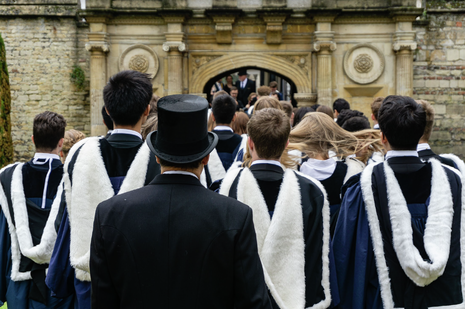Use ‘content notes’ to reduce grade gap, University urges
Including ‘general warnings’ in course handbooks could have a ‘a significant positive impact on attainment’

New guidance released by the University encourages the use of “content notes” to reduce the awarding gap for students with mental health issues.
The guidance is aimed at all faculties and departments within the University, and recommends that course handbooks should include “general warnings” about topics such as as sexual assault, physical violence, death, and discrimination.
The University says that these warnings give students “the opportunity to prepare themselves, in an informed way” before engaging with such content.
Initial research suggested that the implementation of the guidance would have “a significant positive impact on attainment”.
Content notes are designed to benefit students with mental health conditions such as PTSD, who may experience flashbacks and panic when seeing reminders of their trauma.
Institutions have a legal obligation under the 2010 Equality Act to make “reasonable adjustments” for these students.
The University also found that even students without conditions would feel “respected and recognised” by the inclusion of content notes.
The guidance is supported by research from two postgraduate students, conducted as part of a project funded by the 2020 University Diversity Fund.
Disabled students were asked how they could be best supported, with 36% of those surveyed responding that content notes would “personally benefit” them.
The majority of departments currently do not have any policy surrounding content notes, but were “enthusiastic” about centralised guidance.
However several Cambridge academics have criticised the new guidance.
Dr Arif Ahmed, a reader in philosophy, told the Telegraph that “real life doesn’t come with a trigger warning”, while Dr James Orr expressed concern about the “dubious evidential support” behind the use of content notes and warned of the “coddling of the Cambridge mind”.
 News / Hundreds of Cambridge academics demand vote on fate of vet course20 February 2026
News / Hundreds of Cambridge academics demand vote on fate of vet course20 February 2026 News / Judge Business School advisor resigns over Epstein and Andrew links18 February 2026
News / Judge Business School advisor resigns over Epstein and Andrew links18 February 2026 News / University Council rescinds University Centre membership20 February 2026
News / University Council rescinds University Centre membership20 February 2026 News / Petition demands University reverse decision on vegan menu20 February 2026
News / Petition demands University reverse decision on vegan menu20 February 2026 News / Caius students fail to pass Pride flag proposal20 February 2026
News / Caius students fail to pass Pride flag proposal20 February 2026










